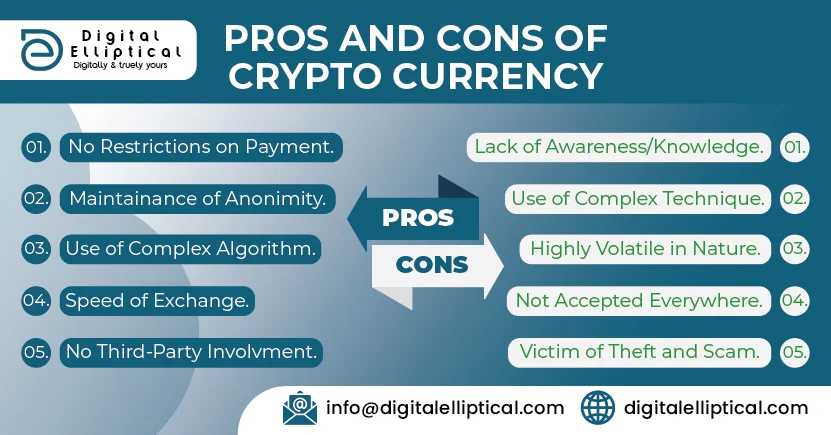Exploring the rise of digital currency in a tech-driven world
The first digital money, Bitcoin, was launched in 2009. Despite operational inefficiencies and security concerns, digital currencies have grown in popularity as a payment mechanism on the worldwide scale. Over time, usage and investment in digital currencies have increased significantly, pushing governments and central banks to investigate the prospect of incorporating digital currencies alongside traditional fiat currencies.
What is digital currency?
Digital money is currency that exists purely in computer form, without a physical equivalent such as coins or banknotes. There are several sorts of digital currencies, including Virtual Currency and Central Bank Digital Currency (CBDC). Unlike traditional currencies, digital currency runs entirely within computer networks, allowing for digital trades.
The existence of digital money is supported by extremely efficient databases and digital storage devices, which are managed by either centralized or decentralized organizations. Its functioning is comparable to that of traditional currencies like as banknotes and coins. While several central banks are investigating the possibility of developing their own CBDC, certain communities and countries remain suspicious and restrict its usage. Furthermore, authority over digital currencies varies: some are managed by centrally located organizations such as a central bank, and others are totally decentralized, with no one body in charge of distribution and regulation.
Virtual money is a type of digital currency that is not regulated by a central bank. It is not issued or regulated by a central body. Cryptocurrency, a sort of virtual money, uses cryptographic techniques to safeguard digital asset transactions over peer-to-peer networks and decentralized systems. Cryptocurrency transactions are controlled and recorded using blockchain, a decentralized system dispersed over several computers. >
In contrast, Central Bank Digital money (CBDC) symbolizes a country's official money in digital form. CBDCs, unlike decentralized cryptocurrencies, are controlled and regulated by the country's monetary authority.
Advantages of using digital currency :
Using digital currency offers several advantages in today's financial landscape:
- Lower Transaction Costs: Digital currencies often have lower transaction fees compared to traditional banking systems and credit card companies, especially for international transactions.
- Speed and Accessibility Transactions with digital currencies can be completed faster than traditional bank transfers, especially across borders. They are also accessible to anyone with an internet connection, reaching unbanked populations
- Security: Digital currencies leverage cryptographic techniques, making transactions secure and reducing the risk of fraud.
- Transparency: Many digital currencies operate on blockchain technology, which provides a transparent and immutable transaction ledger, reducing the possibility of manipulation and increasing trust.
- Decentralization: Digital currencies can be decentralized, meaning they are not controlled by a single entity, such as a central bank, which can protect against inflation and other economic manipulations
- Innovation and Integration: Digital currencies are at the forefront of financial technology innovation, offering new ways to integrate payment systems with the internet and other technological advancements.
- Financial Inclusion: Digital currencies can provide financial services to people who are excluded from the traditional banking system due to lack of access or high costs.
- Programmability Some digital currencies are programmable, allowing for the creation of smart contracts and automated systems that can execute transactions under specific conditions
These advantages are driving the growing adoption of digital currencies and their integration into the broader financial ecosystem.
While digital currencies offer numerous benefits, they also come with several downsides that users and businesses should consider:
Downsides of using digital currency
- Volatility: Digital currencies can be highly volatile, with the value of coins like Bitcoin experiencing rapid and unpredictable changes. This volatility can pose a risk for both investment and use as a stable medium of exchange.
- Security Risks: Although digital currencies use advanced cryptographic security, they are still susceptible to hacking and theft. Digital wallets and exchanges have been targets of high-profile security breaches.
- Regulatory Uncertainty: The regulatory environment for digital currencies is still evolving, with different countries having varying approaches. This can lead to uncertainty for businesses and individuals regarding compliance and legal standing.
- Limited Acceptance: Digital currencies are not universally accepted as a form of payment, and users may find it challenging to use them for everyday transactions or convert them to traditional currencies..
- Irreversible Transactions: Unlike credit card payments, which can be disputed and reversed, digital currency transactions are typically irreversible, increasing the risk of loss due to fraud or mistakes
- Lack of Consumer Protections There are fewer consumer protections for digital currency users compared to traditional banking systems. If a digital wallet is lost or a user falls victim to a scam, there may be no recourse to recover the funds.
- Environmental Concerns: Some digital currencies, like Bitcoin, require significant computational power for mining and transaction verification processes, leading to concerns about their environmental impact due to high energy consumption.
- Technical Barriers: The use of digital currencies requires a certain level of technical knowledge, which can be a barrier to entry for some individuals and businesses.
- Market Saturation: With the proliferation of numerous digital currencies, the market can become saturated, making it difficult for users to choose which currency to adopt and for businesses to decide which ones to accept.
- Potential for Illegal Activities: The anonymity and borderless nature of digital currencies can make them attractive for illegal activities, such as money laundering and purchasing illicit goods, which can lead to increased scrutiny from law enforcement agencies.
There Are Some Points of Crypto Currency ( PROS & CONS )
How do international bodies see digital currency?
International organizations have varying viewpoints on digital money, with governments throughout the world reacting differently to the usage of cryptocurrencies. For example, nations such as Singapore and Switzerland have emerged as major cryptocurrency centers, encouraging the growth and development of cryptocurrency enterprises within their borders. On the other side, certain countries, including as India, China, and South Korea, have decided to prohibit cryptocurrencies or cryptocurrency-related activity. In contrast, numerous European governments and the United States are taking a more nuanced approach, attempting to find a balance between fostering financial innovation and mitigating possible dangers through cryptocurrency regulation.
According to the Bank of International Settlements, digital currency is an asset represented in digital form that has monetary properties. This means it may be changed into a sovereign currency and is issued by an institution in charge of exchanging digital money for cash.
According to the European Central Bank, digital currency is an uncontrolled kind of digital money that is often issued and managed by its developers. It is used and approved by a certain virtual community.
The US Department of Treasury defines virtual money as a means of trade that has no legal tender status in any country. While it functions similarly to cash in certain nations, it does not have all of the characteristics of a true currency.
Final Take: At least 80% of central banks are currently researching this technology.
Users of cryptocurrencies believe that digital currencies will be the future of money. While digital currencies have grown in popularity over the years, there are still certain concerns about using cryptocurrencies as money, as previously indicated. Recently, some nations, like China, have prohibited the usage of cryptocurrencies, resulting in massive price fluctuation. China has already started testing its state-regulated digital currency (CBDCs), and the national banks of various nations are looking at incorporating blockchain technology into their financial systems, which might affect the way people see digital money in the future.



